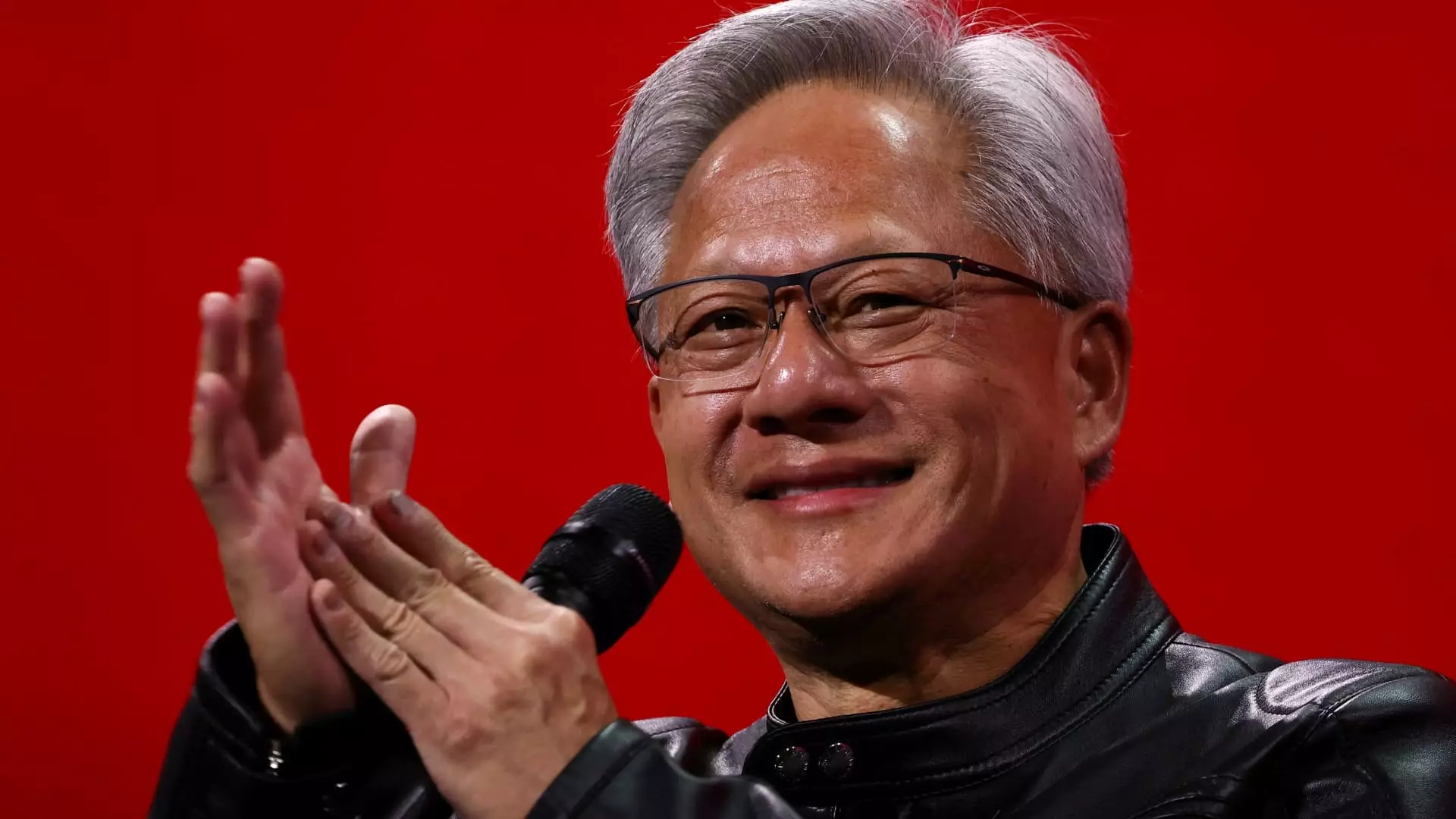In recent months, China’s rapid advancement in artificial intelligence has emerged as a stark challenge to Western dominance in the technology sphere. Companies like Alibaba, Tencent, Baidu, and even startups such as High-Flyer with their DeepSeek model, are not merely following in the footsteps of established giants like OpenAI—they are redefining the landscape. Their open-source approach democratizes access to AI development, breaking down barriers that traditionally kept innovation within the confines of Western tech conglomerates. This shift signals a movement towards a more inclusive, albeit complex, global AI community that values shared knowledge over proprietary monopolies.
However, the implications of these developments extend far beyond just technological progress. The fact that China’s AI models have managed to develop rapidly despite restrictions on U.S. chips reveals a resilience and ingenuity that no longer fit within the simplistic narrative of competitive embargoes and trade restrictions. China’s AI ecosystem is fostering a new form of innovation driven by collaboration and open exchange, which could accelerate global technological progress or threaten to destabilize existing geopolitical power balances precisely because it circumvents traditional Western controls.
The Geopolitical Tensions Undermining Innovation’s True Purpose
The ongoing tug-of-war between the U.S. and China over technology access is increasingly clouding the true potential of AI. U.S. export restrictions intended to curb China’s military development have inadvertently spurred Chinese companies to accelerate their own independent research efforts. This unintended consequence exposes the flawed nature of tech nationalism: restrictive policies aimed ostensibly at national security often end up fostering parallel, autonomous ecosystems that diminish global cooperation.
The recent signals of easing restrictions after intensive diplomatic negotiations complicate this landscape. While some may see this as a sign of foresight or diplomacy, it also raises questions about the genuine intent behind such gestures. Does the easing reflect a strategic recognition that AI development must be multi-lateral and cooperative, or is it simply pragmatic politics masking ongoing competition? Either way, it demonstrates that the blockchain of trust and cooperation among nations in AI development remains fragile and susceptible to shifting geopolitical winds.
Open-Source AI: A Double-Edged Sword for Global Innovation and Security
Jensen Huang’s praise of China’s open-source approach to AI highlights a pivotal debate: Should the future of AI be a communal enterprise or a guarded national treasure? Huang’s view that open-source contributes to global progress and safety is compelling; it suggests that AI’s benefits are maximized when knowledge is shared universally. Yet, this openness also introduces risks. The democratization of such powerful tools means that non-state actors, malicious entities, or even rogue regimes could access AI technology without proper safeguards.
Furthermore, the fact that Chinese firms are rapidly developing models that threaten to outperform American offerings such as ChatGPT indicates that openness accelerates innovation but also destabilizes existing industries. If AI advances remain concentrated within government-aligned or state-supported sectors, this can deepen inequalities and control rather than democratize opportunity. On the other hand, embracing open-source models might also be a way to foster international cooperation on standards, safety, and ethical frameworks—a necessity as AI’s influence pervades daily life.
Is the Global AI Race Truly About Progress or Power?
The narrative around AI development frequently revolves around the race to dominate technological innovation. But beneath that lies a more insidious game of power projection. When companies like Nvidia lament losses stemming from sanctions and restrictions, it exposes the economic stakes tied to geopolitical influence. American companies, despite their technological prowess, are hamstrung by policies that limit their ability to fully capitalize on markets like China, where the potential customer base and talent pool are enormous.
This tug-of-war complicates the genuine goal of AI: improving society. The competitive framing tends to prioritize national advantage over collective human progress. While innovation is critical, it becomes secondary when embedded within a zero-sum game of technological supremacy. The dangerouspromise is that AI becomes a tool for geopolitical leverage rather than a force for global good. Jensen Huang’s balancing act—praising China’s contributions while advocating for American leadership—can be read as a pragmatic attempt to navigate this tension. Still, it also reveals a system deeply rooted in power dynamics that can threaten to sideline broader ethical and societal considerations.
Balancing Innovation with Responsibility in a Fragmented World
The future of AI, especially with China’s rising influence, invites us to reassess how we approach innovation. Is the current model sustainable, or are we heading towards a fragmented world where different blocs develop incompatible AI standards, risking chaos and misuse? Open-source AI might act as a double-edged sword—fostering rapid progress but risking misuse and security breaches. It underscores the urgency for international cooperation that transcends ideological divides.
Ultimately, a more centrist, cooperative approach could serve as a stabilizing force amidst global fragmentation. Recognizing that AI’s potential benefits are intertwined with societal trust and global alignment is crucial. Policymakers and industry leaders must navigate the thin line between fostering innovation and ensuring ethical, safe development that benefits the many, not just the few. As AI continues to evolve, the challenge will be to foster a balanced ecosystem that champions progress without exacerbating divisions or empowering destructive powers.

